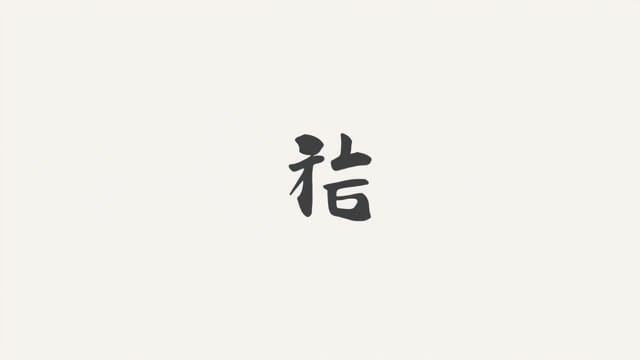Understanding the meaning of the word ‘desultory’ and its translation in Chinese can greatly enhance language skills for both English and Chinese learners. ‘Desultory’ is an adjective used to describe actions or conversations that are random, disconnected, or lacking a clear plan or purpose. Exploring its definition, usage, and Chinese equivalents will provide deeper insight into the word’s significance and help with effective communication. This topic will cover the English meaning of ‘desultory,’ its Chinese translation, examples, and relevant keywords for SEO purposes.
Definition of Desultory in English
Meaning and Explanation
‘Desultory’ refers to something done without a definite plan, purpose, or enthusiasm. It can describe actions, conversations, or thoughts that jump from one topic to another without any logical sequence. The term often carries a negative connotation, suggesting aimlessness or lack of focus.
Common Uses of Desultory
- Desultory conversation: a talk that lacks a clear topic or direction.
- Desultory effort: an attempt that is casual or half-hearted.
- Desultory reading: skimming through material without paying close attention.
Chinese Meaning of Desultory
Direct Translations
In Chinese, ‘desultory’ can be translated into several words or phrases depending on context. Some common equivalents include:
- æ£æ¼« (sÇn mà n): meaning loose, casual, or lacking concentration.
- 漫æ ç®ç (mà n wú mù dì): literally ‘aimless,’ describing something without a clear goal.
- ææç»ç» (duà n duà n xù xù): meaning intermittent or broken, often used for things that are inconsistent or irregular.
- æ æ¡ç (wú tiáo lÇ): meaning disorganized or lacking order.
Contextual Nuances in Chinese
Each Chinese term captures a different aspect of the English word ‘desultory.’ For example,æ£æ¼«emphasizes a lack of concentration, often relating to attitude or effort, while漫æ ç®çhighlights aimlessness, more focused on the absence of direction or purpose.ææç»ç»suggests something that happens sporadically, not continuously, andæ æ¡çconveys disorder or lack of logic.
Examples of Desultory in English Sentences
- The meeting was desultory, with no clear agenda or focus.
- She made desultory attempts to finish her homework, easily distracted.
- The conversation was desultory, jumping between unrelated topics.
- His desultory reading didn’t help him prepare well for the exam.
Examples of Desultory Translated into Chinese Sentences
- ä¼è®®è¿è¡å¾ å¾æ£æ¼«ï¼æ²¡ææç¡®çè®®ç¨ã (The meeting was very desultory, without a clear agenda.)
- 她漫æ ç®çå°åä½ä¸ï¼å¸¸å¸¸åå¿ã (She did her homework in a desultory manner, often distracted.)
- ä»ä»¬çè°è ææç»ç»ï¼æ²¡æ主é¢è¿è´ ã (Their conversation was desultory, lacking coherent topics.)
- ä»çé è »æ æ¡çï¼èè åå¤ä¸å åã (His reading was desultory, and he was unprepared for the exam.)
Synonyms and Related Words
Understanding synonyms of ‘desultory’ helps expand vocabulary and clarifies subtle differences:
- Random
- Haphazard
- Unsystematic
- Casual
- Disorganized
- Unfocused
How to Use Desultory Correctly
When using ‘desultory,’ consider the context to avoid confusion with similar words:
- Use it to describe lack of focus or coherence.
- Appropriate for describing conversations, efforts, or actions that seem unplanned.
- Not ideal for positive or purposeful activities.
Common Mistakes
Some might confuse ‘desultory’ with ‘dilatory,’ which means slow or delayed, or ‘disruptive,’ which means causing disturbance. Be sure to use ‘desultory’ specifically for lack of consistent purpose or connection.
Why Knowing the Chinese Meaning of Desultory is Helpful
For Chinese speakers learning English, understanding ‘desultory’ and its equivalents improves comprehension of nuanced English texts and conversations. It also aids in expressing similar concepts in Chinese accurately. For English speakers learning Chinese, recognizing these terms helps when reading Chinese literature or engaging in discussions about planning, effort, or focus.
Summary
‘Desultory’ means lacking a definite plan, purpose, or enthusiasm. Its Chinese meanings includeæ£æ¼«,漫æ ç®ç,ææç»ç», andæ æ¡ç, each reflecting different nuances of randomness, aimlessness, or lack of order. Knowing the differences among these helps learners use the word accurately in both languages. Examples in English and Chinese demonstrate practical usage, aiding vocabulary building and language learning. Using ‘desultory’ correctly enhances clear communication and helps avoid misunderstandings related to focus and purpose.
